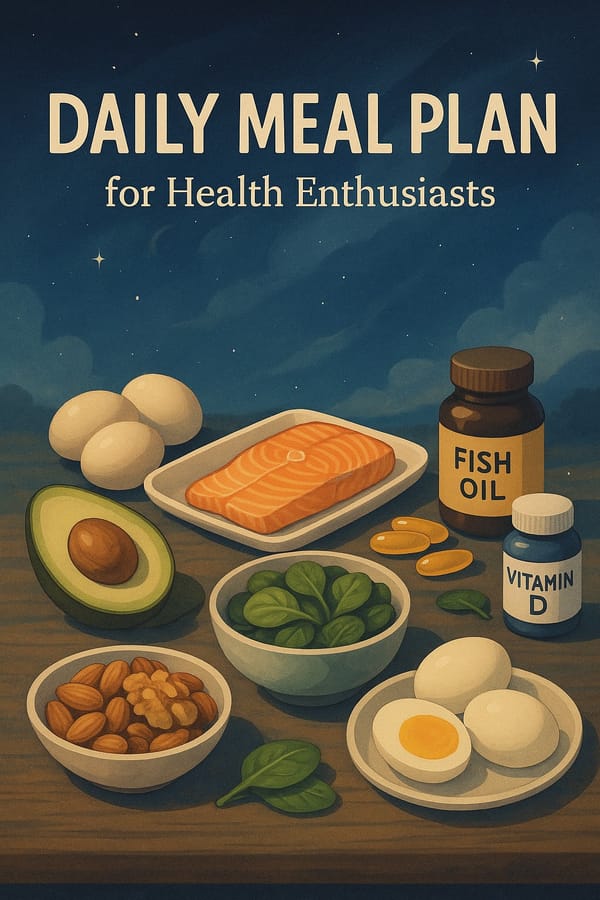Tips for Maintaining Health at 50+ to Prevent Hypertension, Diabetes, and Kidney Disease
Comprehensive health care tips for individuals aged 50+ to prevent hypertension, diabetes, and kidney disease through proper nutrition, exercise, and lifestyle adjustments. Read this complete guide and apply it effectively.

Introduction
As we reach the age of 50 and beyond, our bodies undergo various changes, including metabolism, muscle strength, joint flexibility, and circulatory system efficiency. These changes increase the risk of chronic diseases such as hypertension, diabetes, and kidney disease if proper health care is neglected. This article provides practical guidance on lifestyle modifications, nutrition, exercise, and regular health check-ups to help those aged 50+ maintain good health and avoid common chronic diseases.
Hypertension (high blood pressure), diabetes, and kidney disease are closely interconnected, making comprehensive health management essential. By implementing proper preventive measures, these diseases can be avoided or managed effectively if already present.
The Importance of Health Management at 50+
- Metabolic Changes
- As we age, our basal metabolic rate (BMR) decreases, making it easier to gain weight if calorie intake remains unchanged. Proper diet and increased physical activity are crucial.
- Hormonal changes, including decreased sex hormones, can affect muscle mass and bone density.
- Declining Circulatory System Efficiency
- Blood vessels may harden (atherosclerosis) and lose elasticity with age, increasing the risk of hypertension.
- The heart has to work harder to pump blood, emphasizing the need for regular blood pressure monitoring and sodium intake control.
- The Link Between Hypertension, Diabetes, and Kidney Disease
- Hypertension can reduce blood flow to the kidneys, forcing them to work harder.
- Diabetes can cause complications such as diabetic nephropathy, leading to kidney failure.
- Prolonged hypertension and diabetes significantly increase the risk of chronic kidney disease.
- Quality of Life in Later Years
- Proper health care helps prevent chronic diseases, ensuring an active and fulfilling life with loved ones.
Did You Know? According to the World Health Organization (WHO), chronic disease rates rise with age, making early prevention crucial in reducing long-term healthcare costs.
Nutrition Guidelines to Prevent Hypertension, Diabetes, and Kidney Disease
A well-balanced diet is essential in lowering the risk of these chronic diseases. Proper meal planning, nutritional control, and consuming fresh, healthy foods are the key to maintaining optimal health at 50+.
1. Choose Low-Sodium Foods
- Avoid processed foods: Sausages, bacon, ham, canned goods, and salty snacks are high in sodium, increasing blood pressure and kidney strain.
- Limit salt and salty condiments: Use herbs and fresh spices instead of excessive salt or fish sauce.
- Read nutrition labels: Monitor sodium intake to avoid excessive consumption.
2. Control Sugar Intake
- Reduce sweets and sugary beverages: Avoid sodas, concentrated fruit juices, energy drinks, and pastries.
- Opt for complex carbohydrates: Whole grains, brown rice, and whole wheat bread help maintain stable blood sugar levels.
- Consume high-quality protein: Choose lean meats, fish, tofu, and legumes while avoiding excessive protein intake to reduce kidney strain.
3. Balance Fat Intake
- Avoid saturated and trans fats: Found in fried foods, fatty meats, margarine, and certain baked goods, these increase cholesterol levels and blood pressure.
- Include healthy fats: Olive oil, rice bran oil, nuts, flaxseeds, chia seeds, and fatty fish like salmon provide omega-3 fatty acids that reduce inflammation and cardiovascular risk.
4. Increase Vegetable and Fruit Consumption
- Rich in vitamins, minerals, and fiber: Colorful vegetables and fruits help lower cholesterol, regulate blood sugar, and support digestive health.
- High-fiber options: Kale, broccoli, spinach, cabbage, apples, guava, and dragon fruit improve digestion and cholesterol control.
5. Stay Hydrated
- Maintain fluid balance: Drink 6-8 glasses of water daily to support kidney function and waste elimination.
- Limit caffeine and alcohol: Excessive intake can increase blood pressure and burden the body.
Recommended Exercise for Individuals Aged 50+
Regular exercise strengthens muscles and the circulatory system while managing weight and reducing the risk of hypertension, diabetes, and kidney disease.
1. Aerobic Exercise
- Activities: Brisk walking, jogging, cycling, swimming – all enhance circulation, lower blood pressure, and promote fat burning.
- Frequency and duration: At least 150 minutes per week (30 minutes, five days per week) at a moderate intensity.
2. Strength Training
- Weight training: Use dumbbells, resistance bands, or bodyweight exercises (push-ups, squats) to maintain muscle mass and bone density.
- Recommended frequency: At least 2-3 days per week, adjusting intensity based on fitness level.
3. Flexibility and Balance Exercises
- Yoga, Tai Chi, Pilates: Improve flexibility and balance, reducing fall risks and injuries.
- Stretching before and after workouts prevents injuries and improves mobility.
4. Precautions
- Consult a doctor before starting an exercise routine, especially if you have pre-existing conditions.
- Avoid overexertion: If dizziness, shortness of breath, or fatigue occurs, take a break or lower exercise intensity.
Lifestyle Modifications for Better Health
In addition to diet and exercise, lifestyle adjustments play a crucial role in preventing chronic diseases.
1. Stress Management
- Get enough sleep: Aim for 7-9 hours per night to regulate stress hormones and metabolism.
- Practice mindfulness or yoga: Helps lower stress, a major factor contributing to high blood pressure.
- Engage in hobbies: Gardening, music, reading, or walking promote relaxation.
2. Quit Smoking and Reduce Alcohol Intake
- Smoking: Nicotine narrows blood vessels, raising blood pressure and increasing heart disease risk.
- Alcohol: Limit consumption to avoid adverse effects on blood pressure and blood sugar levels.
3. Regular Health Check-Ups
- Monitor blood pressure: Regular checks help detect hypertension early.
- Test blood sugar levels: Annual screening ensures early diabetes detection.
- Assess kidney function: Tests like creatinine, BUN, and GFR gauge kidney health.
4. Seek Professional Guidance
- Dietitians help plan personalized nutrition strategies.
- Nephrologists provide kidney disease-specific care.
- Fitness trainers design suitable workout routines.
Conclusion
Maintaining health at 50+ requires a holistic approach that includes nutrition, exercise, lifestyle changes, and regular health check-ups. Prevention is the best strategy—monitor key health markers regularly and seek medical advice for abnormalities. Investing in your health ensures an active, disease-free life as you age.



